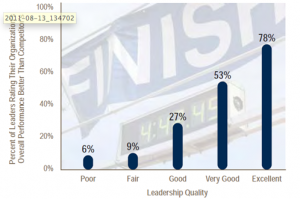by Charles Plant | May 10, 2012 | Management
 You’ve probably sat in many meetings and noticed that there are always one or two people who don’t actually say much of anything in those meetings. I used to figure that they mustn’t have much to say but lately I found that I have been wrong. Everyone has an opinion and most people like having their opinion heard. So what is it that is preventing these people from sharing. If you want to exercise some leadership muscle, after you see this at the next meeting, simply ask the non-participant
You’ve probably sat in many meetings and noticed that there are always one or two people who don’t actually say much of anything in those meetings. I used to figure that they mustn’t have much to say but lately I found that I have been wrong. Everyone has an opinion and most people like having their opinion heard. So what is it that is preventing these people from sharing. If you want to exercise some leadership muscle, after you see this at the next meeting, simply ask the non-participant
- what they thought of the meeting,
- whether they had anything they wanted to add and
- why they didn’t participate.
While their answer might be valuable what will be even more valuable is positioning yourself as a leader by reaching out and listening.
by Charles Plant | May 8, 2012 | Management
 The world seems fixated on improving productivity and I guess if everyone else is doing it, you should be doing it too. Now what is the way most people think first about improving productivity? Well, of course, it’s through computerization. Over the last 30 years we’ve invested trillions in automating the shop floor, collecting and managing data and communicating more effectively.
The world seems fixated on improving productivity and I guess if everyone else is doing it, you should be doing it too. Now what is the way most people think first about improving productivity? Well, of course, it’s through computerization. Over the last 30 years we’ve invested trillions in automating the shop floor, collecting and managing data and communicating more effectively.
We’re spending $6,000 a year per employee on computerization
Are we more productive as a result, absolutely but we’re forgetting another important lever for productivity, better management. Now that we’ve spent so much on computerization, improving management may be the next best lever for improving productivity.
But we’re only spending $300 per year per employee on management training
No wonder we have so many cases of bad management, we’re spending almost nothing on training people to be better managers and leaders.
by Charles Plant | May 7, 2012 | Management, Video
I asked Derek Fisher what he thought was the greatest skill he learned in being a manager and he said, listening. Surprisingly, his answer was repeated by several other people of whom I asked the same question.
by Charles Plant | May 4, 2012 | Management
 It’s funny how something as simple as walking around chatting with people can become a style of management. Proponents of MBWA claim that:
It’s funny how something as simple as walking around chatting with people can become a style of management. Proponents of MBWA claim that:
- it allows managers to solve problems as they are happening.
- it fosters the development of informal networks.
- it keeps managers fingers on the pulse of the organization
Successful CEOs such as John Connelly of Crown Cork and Seal and Mike Duke of WalMart were famous for walking the shop floor and the loading docks, just chatting with employees. MBWA may have allowed them to uncover hidden problems but it was something more than that. It made them leaders.
MBWA is about making an emotional connection
If you want to be a great leader, you’ll need to make an emotional connection with people and MBWA is a great way of doing that.
by Charles Plant | May 3, 2012 | Management
Well duh? Of course effective leadership matters. Did we need a study to tell us this? Actually, we probably did. For some reason, we are predisposed to give people positions of power and authority without any training in management and leadership. Development Dimensions International published their 2011 study on leadership. You can read a good blog summary of the findings here.
“The research demonstrated that organizations with the highest quality leaders were 13 times more likely to outperform their competition in key bottom-line metrics such as financial performance, quality of products and services, employee engagement, and customer satisfaction.”

by Charles Plant | Apr 30, 2012 | Management, Video
If you think you might like to be a manager, listen to Kerri Golden’s video blog about something you might like to consider.
 You’ve probably sat in many meetings and noticed that there are always one or two people who don’t actually say much of anything in those meetings. I used to figure that they mustn’t have much to say but lately I found that I have been wrong. Everyone has an opinion and most people like having their opinion heard. So what is it that is preventing these people from sharing. If you want to exercise some leadership muscle, after you see this at the next meeting, simply ask the non-participant
You’ve probably sat in many meetings and noticed that there are always one or two people who don’t actually say much of anything in those meetings. I used to figure that they mustn’t have much to say but lately I found that I have been wrong. Everyone has an opinion and most people like having their opinion heard. So what is it that is preventing these people from sharing. If you want to exercise some leadership muscle, after you see this at the next meeting, simply ask the non-participant


